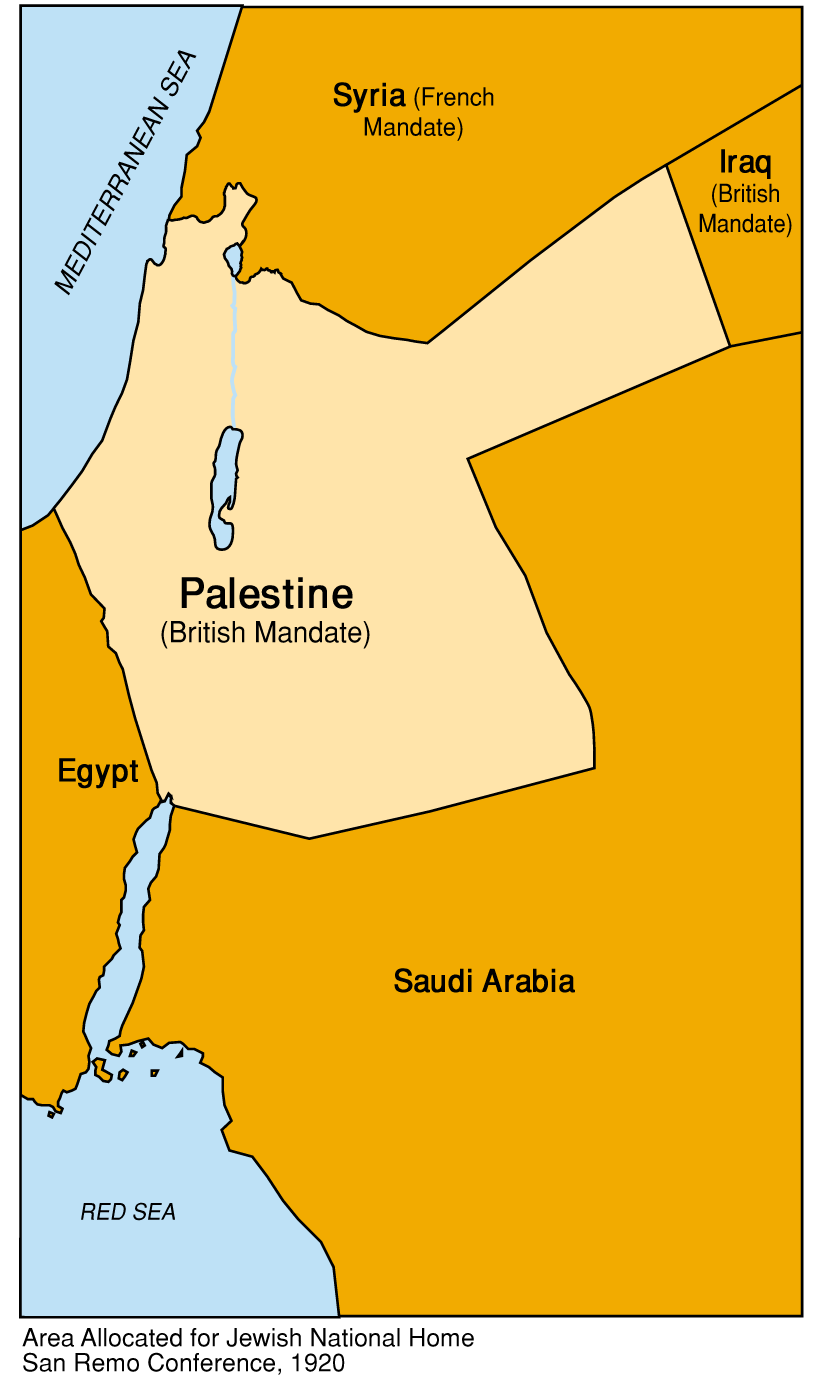A Forgivable Genocide -- Part 1 - Historical background ... by Bob Nelson


Part 1 - Historical background
To the victors go the spoils
Defeat in the Great War brought down the house of cards that was the Ottoman Empire. The victors, Great Britain and France, scrambled to gather up as much influence, oil, land and population as possible. At the time, European countries still held their world-wide empires, so they naturally considered their action in the Middle East to be a just another form of empire-building.
The Ottomans' administrative units (known as "sanjak" and named for the administrative seat) were ignored when the Allies drew their lines on their maps, just as ethnic groups and relief features had been ignored in Africa.
The land east of the Jordan River, Sanjak Kerak, had been ruled from Damascus under the Ottomans. Damascus was in the French sphere, so the British, who intended to control the region through the local sheiks with whom they had allied themselves against the Turks, needed a means of carving it loose.
 They found a means in the "Palestine Mandate". The "mandates" were agreements among the Allies, confirmed by the League of Nations, for the administration of former Ottoman territories. The British "traded" the Golan Heights, which the French wanted as part of their "Syrian Mandate", for the land east of the Jordan River... or perhaps east of the Hejaz Railway, the limits being very unclear!
They found a means in the "Palestine Mandate". The "mandates" were agreements among the Allies, confirmed by the League of Nations, for the administration of former Ottoman territories. The British "traded" the Golan Heights, which the French wanted as part of their "Syrian Mandate", for the land east of the Jordan River... or perhaps east of the Hejaz Railway, the limits being very unclear!
During the Great War, the British were most magnanimous! They were quick to distribute land to people they wanted as friends... land that they did not in fact control... land that was still part of the Ottoman Empire. Sometimes they were so magnanimous that they gave the same land to two different people! Or at least they were not very careful about the boundaries of their "gifts", leaving a bit of overlap here and there between them.
In 1915, they promised land (McMahon-Hussein correspondence) to the Arabs... without actually defining its limits. The British specified areas that were not included... but did not specify what land was included! In any case, this land was "somewhere" east of the Jordan.
Also during the war, the British promised a homeland to the Jews -- the famous Balfour Declaration of 1917... which did not specify any boundaries, either! Balfour himself considered that the new country should "extend east of the Jordan but not include the Hejaz Railway".
These two British promises are each so vague that they may... or may not... overlap geographically. They also may or may not overlap politically.
 The Balfour Declaration included the phrase, "it being clearly understood that nothing shall be done which may prejudice the civil and religious rights of existing non-Jewish communities in Palestine"... without defining its meaning. At the time, displacing a few hundred thousand people would not have been considered unacceptable, if it was done humanely, and if living conditions on arrival were as good as those left behind. The same sort of massive displacement was done all over Europe, to collect all of an ethnic group within its national boundaries. Quotes from Balfour seem to indicate that this was his presumption for Jews and Muslims in Palestine, but nothing was explicit, and certainly nothing was official.
The Balfour Declaration included the phrase, "it being clearly understood that nothing shall be done which may prejudice the civil and religious rights of existing non-Jewish communities in Palestine"... without defining its meaning. At the time, displacing a few hundred thousand people would not have been considered unacceptable, if it was done humanely, and if living conditions on arrival were as good as those left behind. The same sort of massive displacement was done all over Europe, to collect all of an ethnic group within its national boundaries. Quotes from Balfour seem to indicate that this was his presumption for Jews and Muslims in Palestine, but nothing was explicit, and certainly nothing was official.
The victors of WWI (Great Britain, France, Italy and Japan) met at San Remo, Italy, to finalize the dissection of the Ottoman Empire. The San Remo Resolution (25 April 1920) reconfirmed the objective "of the establishment in Palestine of a national home for the Jewish people, it being clearly understood that nothing shall be done which may prejudice the civil and religious rights of existing non-Jewish communities in Palestine, or the rights and political status enjoyed by Jews in any other country."
Already, in 1920, the British were afraid that their Arab allies from the Great War would attack the French in Damascus. The British felt they needed to find political solutions that would "calm" the Arabs.
 The Cairo Conference of March 1921 decided (among others) to give the land east of the Jordan to Abdullah ibn Hussein, while excluding that land from any eventual Jewish homeland... but not excluding it from the Muslim portion of the Balfour Declaration...
The Cairo Conference of March 1921 decided (among others) to give the land east of the Jordan to Abdullah ibn Hussein, while excluding that land from any eventual Jewish homeland... but not excluding it from the Muslim portion of the Balfour Declaration...
Thus was created the Emirate of Transjordan.
---------------------
See also:
A Forgivable Genocide -- Part 2 - Jordan
A Forgivable Genocide -- Part 3 - Black September
A Forgivable Genocide -- Part 4 - Quandary

I am a progressive. On the European spectrum, which puts me way, way WAY out on the left on the American spectrum. So, for a very long time, I hewed to the standard line of poor downtrodden Palestinians and nasty militarist Israelis. I did not know much about the Middle East, so I just went along with my crowd.
But... facts are facts... and as I observed the Middle East, I learned more and more facts that did not fit the scenario. So several years ago, I took the time to do a little research, and posted the series that I am going to post here again.
Feel free to disagree with any part of this... but for your own sake, I suggest that you do some careful research first: I have checked everything here, more than once...
Part one of the conversation.
Major kudos and a big thank you Bob for posting this series!
:~)
Articles like this amount to a justification for Israel doing whatever it wants on that land.
I'm relieved you feel this way, John. Truly, I am, because this article is a compilation of cold, hard facts. Israel's position is based upon irrefutable fact, where the Palestinian position is based on manufactured "truths" and propaganda. Apparently, you are more a consumer of the latter, as indicated by the rest of your post. I'm not sure you read the article, because your post does not indicate any acknowledgement or even understanding of the facts.
We know your opinion already. Don't be afraid to let the facts change your preconceived notions.
Apparently some members of NT require the series to be posted annually in order to jog their memories of the actual facts.
John, please...
Do you have anything substantive to say about the content?